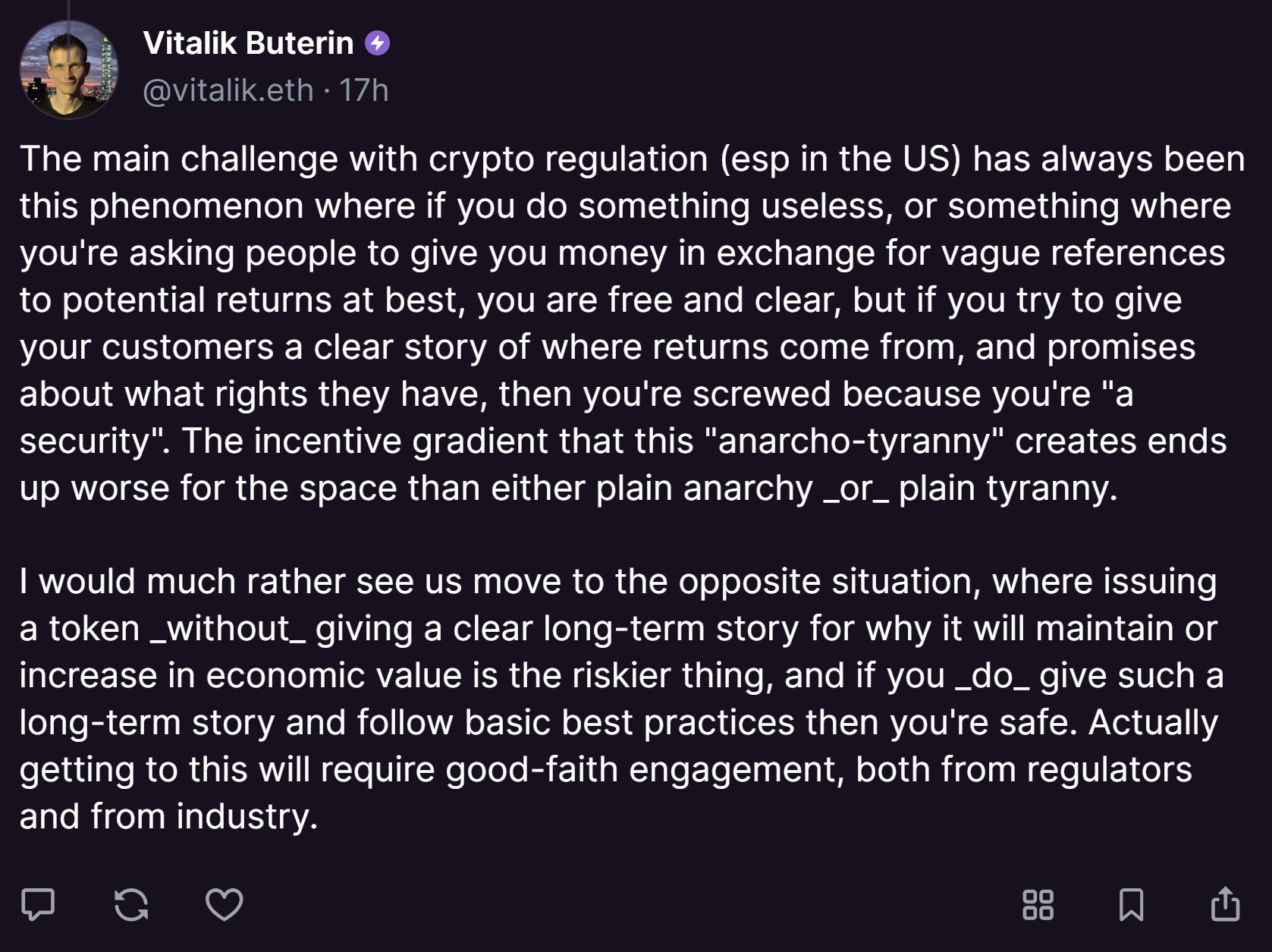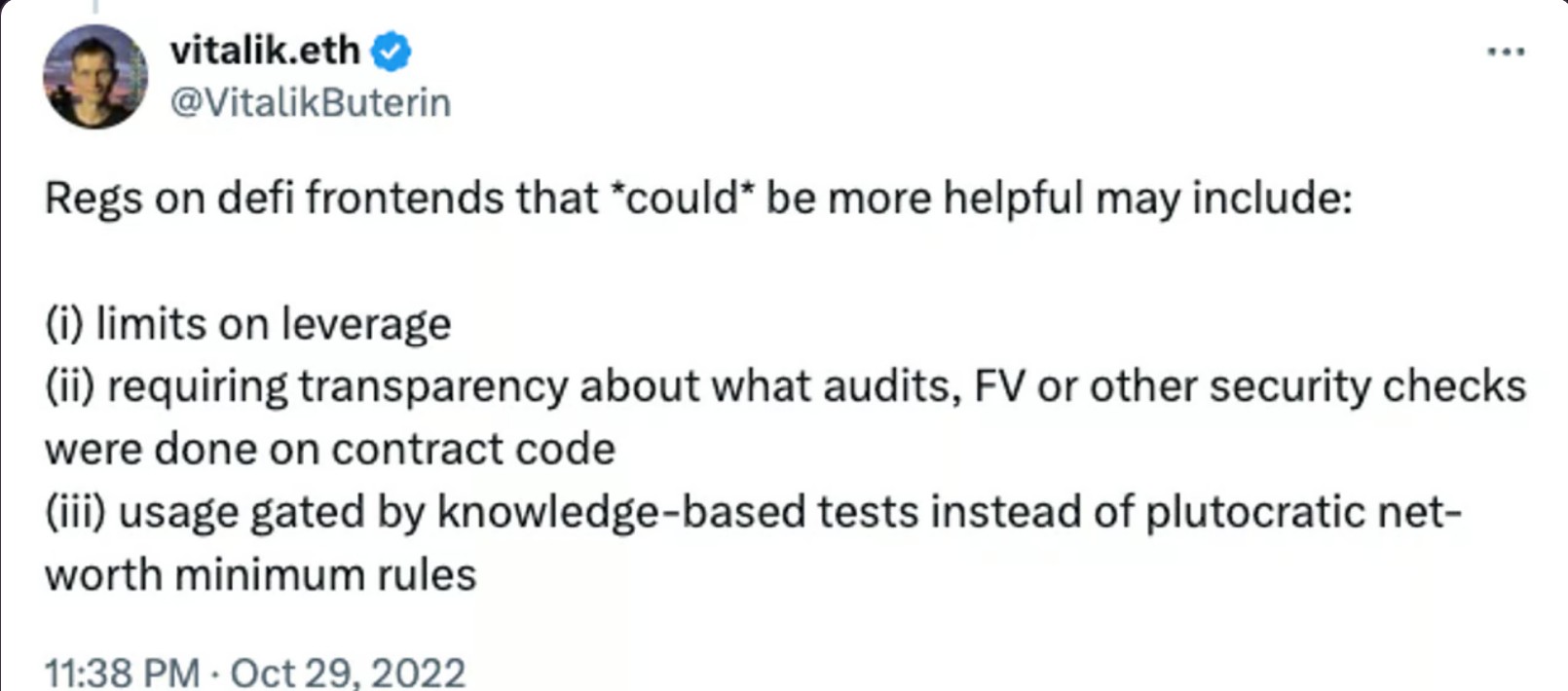Ethereum Founder Vitalik Buterin Criticizes The Current State Of Crypto
- Posted on July 4, 2024 4:08 AM
- Cryipto News
- 552 Views
The co-founder of Ethereum criticized the current state of the crypto sector.

Ethereum's co-founder, Vitalik Buterin, expressed his disappointment with the current state of cryptocurrency regulations and offered a solution.
Responding to a user's question on Warpcast, a social media platform built on the Farcaster protocol, Buterin stated that current regulatory efforts are putting well-intentioned cryptocurrency developers in a difficult position.

Vitalik Buterin stated, "The fundamental challenge with crypto regulation (especially in the US) is that if you do something useless or ask people for money in exchange for vague references to potential returns, you are free and clear. However, if you try to provide a clear story about where returns come from and what rights customers have, you are deemed a 'security' and thus face severe consequences. This 'anarcho-tyranny' creates a gradient of incentives that results in worse outcomes for the space than simple anarchy or outright tyranny."
On the anarchic side, the proliferation of malicious actors, scammers, and unfounded hypotheses on social media and sharing platforms seems to be relentless.
Buterin had previously proposed three suggestions that he believed could address the issue of "useless" crypto products and services.

These suggestions include limiting the use of leverage, increasing requirements for oversight and transparency, and restricting users through information tests.
While it remains unclear how cryptocurrency information tests would be applied at a regulatory level or managed on an individual or corporate level, imposing leverage restrictions on cryptocurrency projects and establishing oversight and transparency requirements are important policy issues.
Tyranny
Unfortunately, the general sentiment within the cryptocurrency community appears to be that the US has a somewhat unclear or disorganized approach to both the high number of cryptocurrency users and cryptocurrency regulations.
Buterin stated that rather than providing the most protection to companies and projects without a long-term vision or plan, he would prefer to see a situation where issuing a token without a clear long-term story about why it will preserve or increase its economic value is considered more risky.
However, Buterin also implied that implementing regulations serving the cryptocurrency industry is only part of the battle:
"Reaching this point will require both the goodwill of regulatory bodies and the sector."
You can stay updated on developments and the latest news in the cryptocurrency markets with Kriptospot.com.
-Yqann2Aqv0.png)
